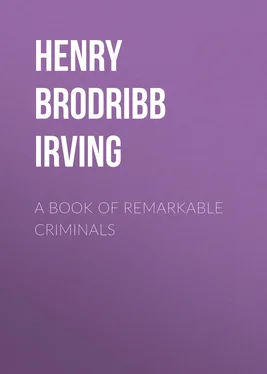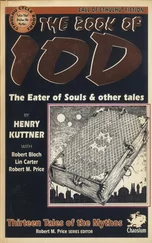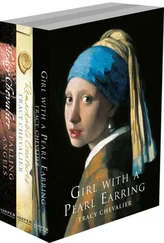Henry Brodribb Irving - A Book of Remarkable Criminals
Здесь есть возможность читать онлайн «Henry Brodribb Irving - A Book of Remarkable Criminals» — ознакомительный отрывок электронной книги совершенно бесплатно, а после прочтения отрывка купить полную версию. В некоторых случаях можно слушать аудио, скачать через торрент в формате fb2 и присутствует краткое содержание. Жанр: Биографии и Мемуары, foreign_antique, на английском языке. Описание произведения, (предисловие) а так же отзывы посетителей доступны на портале библиотеки ЛибКат.
- Название:A Book of Remarkable Criminals
- Автор:
- Жанр:
- Год:неизвестен
- ISBN:нет данных
- Рейтинг книги:4 / 5. Голосов: 1
-
Избранное:Добавить в избранное
- Отзывы:
-
Ваша оценка:
- 80
- 1
- 2
- 3
- 4
- 5
A Book of Remarkable Criminals: краткое содержание, описание и аннотация
Предлагаем к чтению аннотацию, описание, краткое содержание или предисловие (зависит от того, что написал сам автор книги «A Book of Remarkable Criminals»). Если вы не нашли необходимую информацию о книге — напишите в комментариях, мы постараемся отыскать её.
A Book of Remarkable Criminals — читать онлайн ознакомительный отрывок
Ниже представлен текст книги, разбитый по страницам. Система сохранения места последней прочитанной страницы, позволяет с удобством читать онлайн бесплатно книгу «A Book of Remarkable Criminals», без необходимости каждый раз заново искать на чём Вы остановились. Поставьте закладку, и сможете в любой момент перейти на страницу, на которой закончили чтение.
Интервал:
Закладка:
Peace went to Gregory's house, but his friend was not at home. The lure of the Dysons was irresistible. A little after eight o'clock Peace was watching the house from a passageway that led up to the backs of the houses on the terrace. He saw Mrs. Dyson come out of the back door, and go to an outhouse some few yards distant. He waited. As soon as she opened the door to come out, Mrs. Dyson found herself confronted by Peace, holding his revolver in his hand. "Speak," he said, "or I'll fire." Mrs. Dyson in terror went back. In the meantime Dyson, hearing the disturbance, came quickly into the yard. Peace made for the passage. Dyson followed him. Peace fired once, the shot striking the lintel of the passage doorway. Dyson undaunted, still pursued. Then Peace, according to his custom, fired a second time, and Dyson fell, shot through the temple. Mrs. Dyson, who had come into the yard again on hearing the first shot, rushed to her husband's side, calling out: "Murder! You villain! You have shot my husband." Two hours later Dyson was dead.
After firing the second shot Peace had hurried down; the passage into the roadway. He stood there hesitating a moment, until the cries of Mrs. Dyson warned him of his danger. He crossed the road, climbed a wall, and made his way back to Sheffield. There he saw his mother and brother, told them that he had shot Mr. Dyson, and bade them a hasty good-bye. He then walked to Attercliffe Railway Station, and took a ticket for Beverley. Something suspicious in the manner of the booking-clerk made him change his place of destination. Instead of going to Beverley that night he got out of the train at Normanton and went on to York. He spent the remainder of the night in the station yard. He took the first train in the morning for Beverley, and from there travelled via Collingham to Hull. He went straight to the eating-house kept by his wife, and demanded some dinner. He had hardly commenced to eat it when he heard two detectives come into the front shop and ask his wife if a man called Charles Peace was lodging with her. Mrs. Peace said that that was her husband's name, but that she had not seen him for two months. The detectives proposed to search the house. Some customers in the shop told them that if they had any business with Mrs. Peace, they ought to go round to the side door. The polite susceptibility of these customers gave Peace time to slip up to a back room, get out on to an adjoining roof, and hide behind a chimney stack, where he remained until the detectives had finished an exhaustive search. So importunate were the officers in Hull that once again during the day Peace had to repeat this experience. For some three weeks, however, he contrived to remain in Hull. He shaved the grey beard he was wearing at the time of Dyson's murder, dyed his hair, put on a pair of spectacles, and for the first time made use of his singular power of contorting his features in such a way as to change altogether the character of his face. But the hue and cry after him was unremitting. There was a price of L100 on his head, and the following description of him was circulated by the police:
"Charles Peace wanted for murder on the night of the 29th inst. He is thin and slightly built, from fifty-five to sixty years of age. Five feet four inches or five feet high; grey (nearly white) hair, beard and whiskers. He lacks use of three fingers of left hand, walks with his legs rather wide apart, speaks somewhat peculiarly as though his tongue were too large for his mouth, and is a great boaster. He is a picture-frame maker. He occasionally cleans and repairs clocks and watches and sometimes deals in oleographs, engravings and pictures. He has been in penal servitude for burglary in Manchester. He has lived in Manchester, Salford, and Liverpool and Hull."
This description was altered later and Peace's age given as forty-six. As a matter of fact he was only forty-four at this time, but he looked very much older. Peace had lost one of his fingers. He said that it had been shot off by a man with whom he had quarrelled, but it was believed to be more likely that he had himself shot it off accidentally in handling one of his revolvers. It was to conceal this obvious means of identification that Peace made himself the false arm which he was in the habit of wearing. This was of gutta percha, with a hole down the middle of it into which he passed his arm; at the end was a steel plate to which was fixed a hook; by means of this hook Peace could wield a fork and do other dexterous feats.
Marked man as he was, Peace felt it dangerous to stay longer in Hull than he could help. During the closing days of the year 1876 and the beginning of 1877, Peace was perpetually on the move. He left Hull for Doncaster, and from there travelled to London. On arriving at King's Cross he took the underground railway to Paddington, and from there a train to Bristol. At the beginning of January he left Bristol for Bath, and from Bath, in the company of a sergeant of police, travelled by way of Didcot to Oxford. The officer had in his custody a young woman charged with stealing L40. Peace and the sergeant discussed the case during the journey. "He seemed a smart chap," said Peace in relating the circumstances, "but not smart enough to know me." From Oxford he went to Birmingham, where he stayed four or five days, then a week in Derby, and on January 9th he arrived in Nottingham.
Here Peace found a convenient lodging at the house of one, Mrs. Adamson, a lady who received stolen goods and on occasion indicated or organised suitable opportunities for acquiring them.
She lived in a low part of the town known as the Marsh. It was at her house that Peace met the woman who was to become his mistress and subsequently betray his identity to the police. Her maiden name was Susan Gray.
She was at this time about thirty-five years of age, described as "taking" in appearance, of a fair complexion, and rather well educated. She had led a somewhat chequered married life with a gentleman named Bailey, from whom she continued in receipt of a weekly allowance until she passed under the protection of Peace. Her first meeting with her future lover took place on the occasion of Peace inviting Mrs. Adamson to dispose of a box of cigars for him, which that good woman did at a charge of something like thirty per cent. At first Peace gave himself out to Mrs. Bailey as a hawker, but before long he openly acknowledged his real character as an accomplished burglar. With characteristic insistence Peace declared his passion for Mrs. Bailey by threatening to shoot her if she did not become his. Anxious friends sent for her to soothe the distracted man. Peace had been drowning care with the help of Irish whiskey. He asked "his pet" if she were not glad to see him, to which the lady replied with possible sarcasm: "Oh, particularly, very, I like you so much." Next day Peace apologised for his rude behaviour of the previous evening, and so melted the heart of Mrs. Bailey that she consented to become his mistress, and from that moment discarding the name of Bailey is known to history as Mrs. Thompson.
Life in Nottingham was varied pleasantly by burglaries carried out with the help of information supplied by Mrs. Adamson. In the June of 1877 Peace was nearly detected in stealing, at the request of that worthy, some blankets, but by flourishing his revolver he contrived to get away, and, soon after, returned for a season to Hull. Here this hunted murderer, with L100 reward on his head, took rooms for Mrs. Thompson and himself at the house of a sergeant of police. One day Mrs. Peace, who was still keeping her shop in Hull, received a pencilled note saying, "I am waiting to see you just up Anlaby Road." She and her stepson, Willie Ward, went to the appointed spot, and there to their astonishment stood her husband, a distinguished figure in black coat and trousers, top hat, velvet waistcoat, with stick, kid gloves, and a pretty little fox terrier by his side. Peace told them of his whereabouts in the town, but did not disclose to them the fact that his mistress was there also. To the police sergeant with whom he lodged, Peace described himself as an agent. But a number of sensational and successful burglaries at the houses of Town Councillors and other well-to-do citizens of Hull revealed the presence in their midst of no ordinary robber. Peace had some narrow escapes, but with the help of his revolver, and on one occasion the pusillanimity of a policeman, he succeeded in getting away in safety. The bills offering a reward for his capture were still to be seen in the shop windows of Hull, so after a brief but brilliant adventure Peace and Mrs. Thompson returned to Nottingham.
Читать дальшеИнтервал:
Закладка:
Похожие книги на «A Book of Remarkable Criminals»
Представляем Вашему вниманию похожие книги на «A Book of Remarkable Criminals» списком для выбора. Мы отобрали схожую по названию и смыслу литературу в надежде предоставить читателям больше вариантов отыскать новые, интересные, ещё непрочитанные произведения.
Обсуждение, отзывы о книге «A Book of Remarkable Criminals» и просто собственные мнения читателей. Оставьте ваши комментарии, напишите, что Вы думаете о произведении, его смысле или главных героях. Укажите что конкретно понравилось, а что нет, и почему Вы так считаете.












